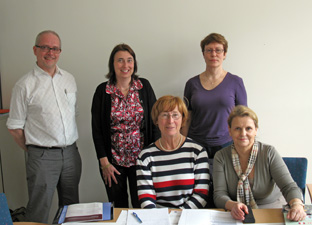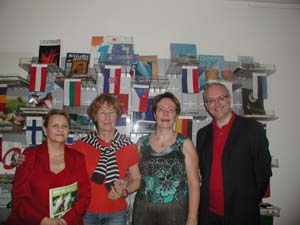Expert meeting at the ECML, 16-17 April 2009

10.04.09
Terry Lamb has produced a powerpoint with the initial findings of the questionnaire and also a clear overview of the project.
In this one he covers the role of the background drivers, FIPLV and ECML
April 2008
During the intial discussions in April, we considered ways of mapping the work of language teacher associations through questionnaires and here is the letter sent with the questionnaire. In the letter itself, you will find a direct link to the questionnaire. The letter sent to the association is in the three working languages, but as this is the English page, the other two languages have been removed - but can be seen on the relevant pages.
Letter of introduction
Dear colleagues,
Liebe Kolleginnen, Liebe Kollegen,
Chères et chers Collègues,
We do hope you are well and have some time to spare to read this email. We would like you to consider the possibility of cooperating in the LACS project (Language Associations and Collaborative Support), which FIPLV, FIPF and IDV jointly submitted to the ECML in Graz and which has been accepted. You will be interested to know that the working languages are English, German and French, the first ECML project to run in three languages.
The project will focus on developing support for association work and on dissemination of ECML activities. You can read more about the LACS project and about the planned workshop for you in May 2009 at the following website:
//lacs.ecml.at/
We hope that our work will bring benefits to you, your colleagues and your classrooms.
Sincerely,
Terry Lamb, President FIPLV, and the project team
Sigurborg Jónsdóttir (FIPLV)
Lucka Pristavec (IDV)
Janina Zielinska (FIPF)
9-10 April 2008
Expert meeting at the ECML

The first meeting of the expert group took place 9 – 10 April 2008. The main objectives of the project were explored in some detail. The aim of the project is to add value to the work of the ECML, of FIPLV and of the individual language teacher association which are affiliated to FIPLV, through disseminating ECML projects as well as collaboratively exploring effective dissemination practices and other roles of language teacher associations.